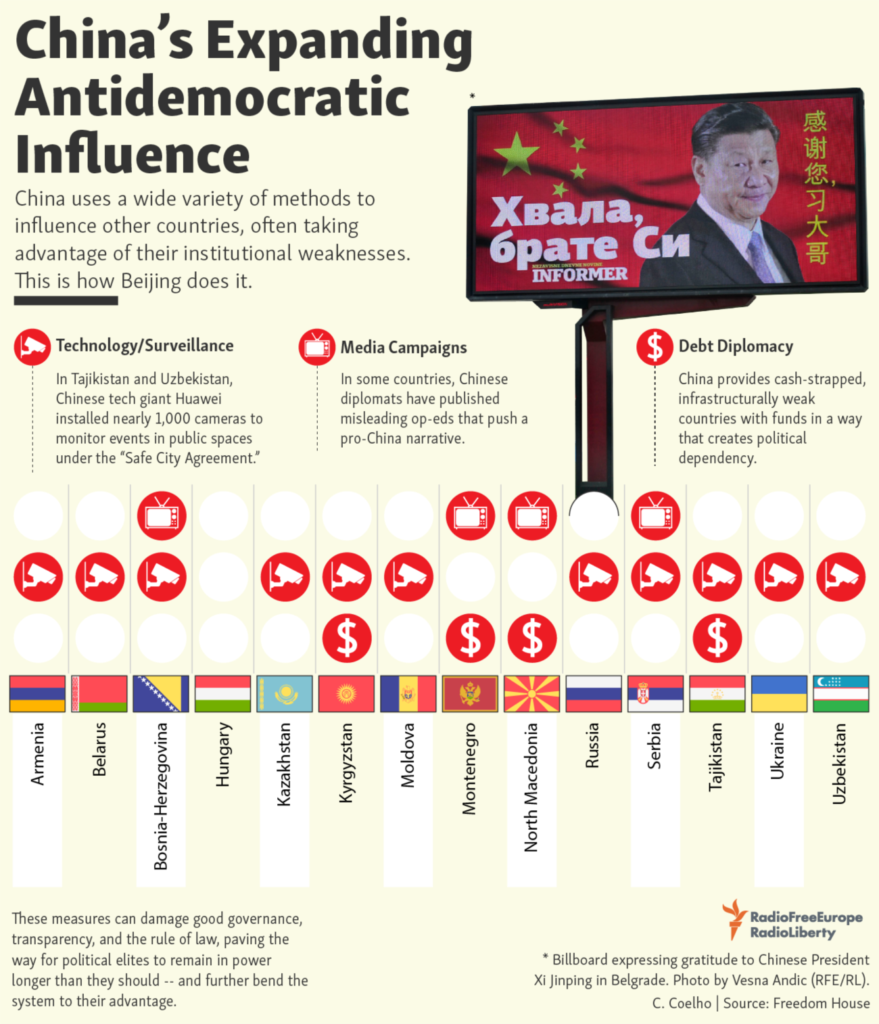
RFE/RL
Democracies should should emphasize, not ignore the ideological dimension of the contest with China, according to a leading commentator.
Chinese President Xi Jinping’s speech to the United Nations General Assembly on Tuesday constituted an explicit pitch to developing countries for a post-U.S. dominant world order hinged to China’s economic development model, POLITICO’s Phelim Khine writes.
“China is projecting itself as the alternative to the U.S.,” said Weifeng Zhong, senior research fellow at George Mason University’s Mercatus Center. “[Xi’s speech] is part of the bigger picture where China is very confidently presenting an alternative version of globalization … and is telling all these smaller countries to pick a side.”
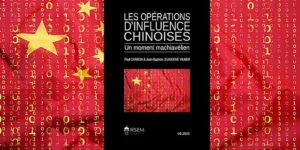
Credit: RFI
A vast and detailed report from the Strategic Research Institute of France’s renowned Military College (Irsem) details how China has built a tentacular network of influence operations, RFI reports.
“Its influence operations have hardened considerably in recent years and its methods increasingly resemble those employed by Moscow,” say the report’s authors. Citing Machiavelli’s The Prince, they say that China thinks that “it is safer to be feared than to be loved”.
The 650-page report – “Chinese influence operations – a Machiavelli moment” – exposes Beijing’s secret and not-so-secret institutions, actions and designs, from the “most benign (public diplomacy) to the most malignant, (clandestine activities),” including efforts to manipulate public opinion through think-tanks, “Confucius Institutes” and media.
The case of Evergrande, a property firm with towering debts, are a reminder of how China’s autocratic regime threatens the global economy, The Economist reports. Liberal reformers have longed for a clean-up of bad debts, a loosening of controls over prices (including the exchange rate), transparency and independent courts that can enforce property rights, it notes. Such a system would allocate capital better and be less prey to moral hazard.
Game theory suggests that the Quad of four big democracies — Australia, India, Japan and the United States — designed to counterbalance China will become a fixture of Indo-Pacific geopolitics, CNBC reports.
Even as it expresses confidence that the Quad will fail, Beijing takes aggressive actions that push the Quad countries closer together, according to experts who spoke to CNBC.
“China is increasingly hemming itself in. Whatever objectives it might harbor for the Indo-Pacific, it’s getting in its own way,” said Ali Wyne, senior analyst for Global Macro at Eurasia Group and a former Penn Kemble fellow at the National Endowment for Democracy (NED).
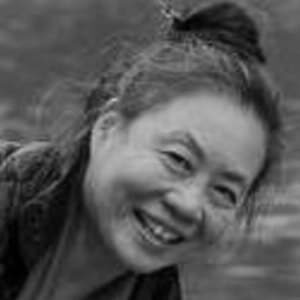
Victims of Communism
During a visit to Beijing in 1995, the democracy activist Dimon Liu (right) met with a former Chinese official sympathetic to democratic reform, recalls former U.S. Deputy National Security Adviser Matt Pottinger. He provided Liu with an insight into U.S.-Chinese relations that she never forgot: “If the contest is based on interests, tyranny wins. If the contest is based on values, democracy wins.”
U.S. leaders should not ignore the ideological dimension of this contest [with China]; they should emphasize it, he writes for Foreign Affairs:
American values—liberty, independence, faith, tolerance, human dignity, and democracy—are not just what the United States fights for: they are also among the most potent weapons in the country’s arsenal, because they contrast so starkly with the CCP’s hollow vision of one-party rule at home and Chinese domination abroad.
Ideology also partly explains why Xi has apparently chosen to put the solidification of his own domestic political standing ahead of China’s unfinished economic reform project, says former Australian premier Kevin Rudd. While the politics of his pivot to the state may make sense internally, if Chinese growth begins to stall Mr. Xi may discover he had the underlying economics very wrong. And in China, as with all countries, ultimate political legitimacy and sustainability will depend on the economy, he writes for The Wall Street Journal.
Pottinger’s stress of the salience of ideology is echoed by another prominent commentator.

National Endowment for Democracy (NED)
“The struggle for values is that we all need to renew and work on together,” not least because “authoritarian sharp power is now one of the biggest challenges we face to the future of democracy,” argues Larry Diamond of Stanford University and editor of The Journal of Democracy.
“The changing balance of power in the world between the United States and our authoritarian adversaries … particularly between China and the United States, is the single most important and endangering change in the world from the 1990s,” he told a National Endowment for Democracy forum this week.
Prospect of failure
“If we don’t understand intellectually and analytically and strategically the challenge that China poses to the future of freedom in the world, I’m sorry to say this; I’m going to be blunt: we will fail.”
He said China is a rising power with an economy that will outperform that of the U.S. in the next decade, with military ambitions involving the invasion and annexation of Taiwan, whose 23 million people have never been ruled by the CCP, and who have no wish to become part of the People’s Republic of China, RFA’s Xue Xiaoshan and Wang Yun report.
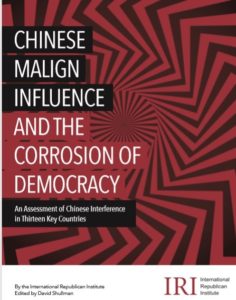 “[China] has the fastest growing military in the world, has abandoned any notion that it should any longer hide its real intention, I believe will launch some kind of military, co-service assault to swallow Taiwan in the next five to six years, and is all over the world now trying undermine democracy, crush freedom as it has in Hong Kong,” Diamond said.
“[China] has the fastest growing military in the world, has abandoned any notion that it should any longer hide its real intention, I believe will launch some kind of military, co-service assault to swallow Taiwan in the next five to six years, and is all over the world now trying undermine democracy, crush freedom as it has in Hong Kong,” Diamond said.
“[This] bears some similarities, more than people want to imagine or be forced to confront, with the rise of Nazi Germany in the 1930s.” While not strictly analogous, he added, “The logic is the same.”
Others take a more accommodating view of China’s assertion of global sharp power.
“It is … vital that Washington be able to distinguish self-interest in another country from an ideological crusade, particularly with regard to U.S. policy toward China,” argues former Carnegie president Jessica T. Matthews. “Mistaking the Chinese Communist Party’s determination to strengthen its position at home and in its region for a global ambition to destroy democracy could prove truly disastrous, raising the likelihood of a war over Taiwan that would be catastrophic for all,” she writes for Foreign Affairs.
It’s clear that two separate constellations of powers are steadily emerging, one largely democratic and led by the United States and the other authoritarian and led by China, Brookings analyst Thomas Wright, Director of the Brookings Institution’s Center on the United States and Europe and a co-author, with Colin Kahl, of Aftershocks: Pandemic Politics and the End of the Old International Order. These constellations are interdependent but riven by distrust and rivalry, he writes for Foreign Affairs:
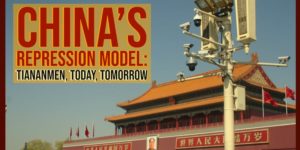
National Endowment for Democracy
The United States and China are also engaged in what Jake Sullivan, Biden’s national security adviser, recently called “a competition of models.” China is seeking to make the world safe for the CCP and to demonstrate the effectiveness of its system. This entails pushing back against what it sees as pressure from liberal democratic countries that could thwart its objectives. For its part, the United States worries about the negative externalities of Chinese authoritarianism, such as censorship of international criticism of Beijing or the export of its tools of repression to other countries.
Cooperation across this [authoritarian/democratic] divide should always be the first choice in times of shared crisis, but as the COVID-19 pandemic has demonstrated, the U.S.-led constellation must always have a backup plan. It did not have one in 2020. It needs one for the next crisis, Wright concludes. RTWT
Unlike in Europe, public opinion reportedly rejects taking sides against China, Australian opinion toward Beijing has hardened, in tandem with Chinese behavior, analyst Michael Fullilove writes for the Lowy Institute. Trust in China has fallen precipitously, with only 16 percent of Australians saying they trust China “a great deal” or “somewhat” to act responsibly in the world, down from 52 percent three years ago.
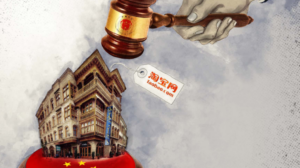
Uyghur Human Rights Project
House Speaker Nancy Pelosi last week warned that “the situation in China is tightening, it’s getting worse and worse [and] that is a major problem,” in an address to Cambridge University’s Cambridge Union Society, citing genocide in Xinjiang, rights abuses in Tibet and attacks on pro-democracy activists in Hong Kong.
Chinese authorities have seized and sold at auction tens of millions of dollars in assets owned by jailed Uyghur business owners amid a broad government campaign to assimilate ethnic minorities in the country’s northwest Xinjiang region, The Wall Street Journal’s Eva Xiao and Jonathan Cheng report:
Since 2019, Xinjiang courts have put at least 150 assets—ranging from home appliances to real estate and company shares—belonging to at least 21 people and valued at a total $84.8 million up for auction on e-commerce sites. The listings were compiled by the Uyghur Human Rights Project, an advocacy group partially funded by the U.S. government, and were corroborated by The Wall Street Journal, which reviewed court documents and corporate records. (Full report here: Under the Gavel: Evidence of Uyghur-Owned Property Seized and Sold Online).
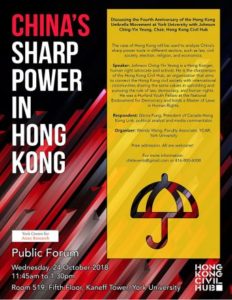 The case of Hong Kong has global implications, given that such a liberal city could see its way of life eroded so rapidly, said exiled lawmaker Nathan Law.
The case of Hong Kong has global implications, given that such a liberal city could see its way of life eroded so rapidly, said exiled lawmaker Nathan Law.
“In our international system, there is not enough accountability [for] authoritarian regimes,” he told the NED forum. “We’ve been seeing the global rise of authoritarianism for more than a decade. We still haven’t sorted out ways and mechanisms [to] hold them accountable.”
“It shows an example of how precious our freedoms are, and how fragile. We have the responsibility to defend them … on a global level,” Law said.
Beijing is also clamping down on Hong Kong’s independent labor movement, notes Human Rights Watch researcher Maya Lang. To square the circle of the purported people’s proletariat repressing workers’ advocates, the authorities portray these unions and other civil society groups with the usual authoritarian trope—that they are “foreign agents” out to “destabilize Hong Kong.” Beijing-controlled unions are poised to claim the mantle of workers’ sole representatives in the city, much like their counterparts in China.
President Biden has championed a Summit for Democracy, scheduled for later this year, partly because he is trying to rally the United States and its allies in the competition with authoritarian China, American University and Brookings analyst James Goldgeier writes for The Washington Post.
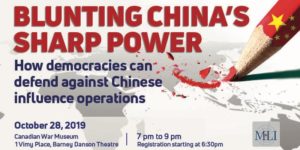 But this isn’t 1990s or early 2000s-style democracy promotion, he adds. Bipartisan support for getting tough on China buttresses Biden’s domestic and foreign policy goals, so he argues that the threat from China shows the need to demonstrate that democracies can perform for their citizens.
But this isn’t 1990s or early 2000s-style democracy promotion, he adds. Bipartisan support for getting tough on China buttresses Biden’s domestic and foreign policy goals, so he argues that the threat from China shows the need to demonstrate that democracies can perform for their citizens.
With enviable discipline, Beijing has long camouflaged its intention to challenge and overturn the U.S.-led liberal order. Beijing co-opted Western technologies that Americans assumed would help democratize China and instead used them to surveil and control its people, Pottinger adds in Foreign Affairs:
Because companies are economic actors, not political ones, it is the government’s responsibility to establish guidelines for engaging with adversaries. With strict new parameters, Washington can level the playing field for all U.S. firms—refreshing their commitment to the United States’ 245-year-old experiment with democracy instead of bowing to the Chinese government’s experiment with neo-totalitarianism.
Without such guidelines, however, U.S. firms, money, and institutions will continue to be coerced into serving Beijing’s ends instead of democratic principles, he suggests. RTWT
#EvergrandeCrisis highlights shortcomings of #China’s opaque, autocratic system https://t.co/5CbMZUFCJL
— Democracy Digest (@demdigest) September 23, 2021







